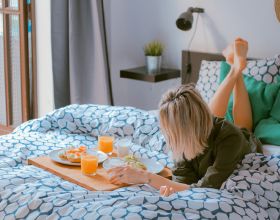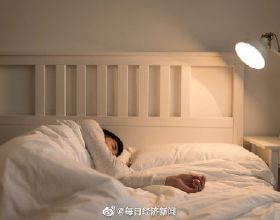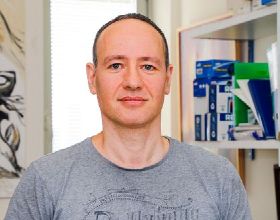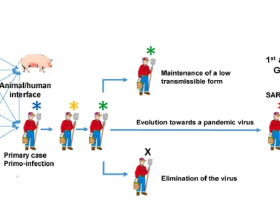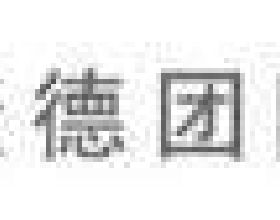來源:中國日報網
一年到頭忙得團團轉的人總是想,要是有一天能閒下來就好了。然而終日無所事事的人卻也並不快樂。那麼每天休息多長時間最幸福?科學家的最新研究給出了答案。
Feeling overwhelmed by your to-do list can certainly make you unhappy, but new research suggests that more free time might not be the magic elixir many of us dream it could be.
被一大堆待辦事項淹沒自然會讓人不開心,但是新研究發現,更多空閒時間可能也不是很多人夢想中的萬能靈藥。
elixir [ɪˈlɪksər]: n. 靈丹妙藥;鍊金藥;長生不老藥
In a new study released last week, researchers analyzed data from two large-scale surveys about how Americans spend their time. Together, the surveys included more than 35,000 respondents.
在上週釋出的一項新研究中,研究人員分析了關於美國人如何支配時間的兩項大型調查資料。這兩項調查一共涵蓋了逾3.5萬人。
The researchers found that people with more free time generally had higher levels of subjective well-being ― but only up to a point.
研究人員發現,空閒時間更多的人一般主觀幸福感更強,但也是有限度的。
People who had up to two hours of free time a day generally reported they felt better than those who’d had less time. But people who had five or more hours of free time a day generally said they felt worse.
從受訪者的報告來看,每天有長達兩小時空閒時間的人通常比那些空閒時間很少的人感覺更幸福。但是每天空閒時間超過五小時的人卻感覺更糟。
So ultimately the free-time “sweet spot” might be two to three hours per day, the findings suggest.
研究結果表明,“最理想的”空閒時間長度應該是每天兩到三小時。
'While too little time is bad, having more time is not always better,” said Marissa Sharif, an assistant professor of marketing at The Wharton School and lead author of the paper, in a press release.
研究報告的首席作者、沃頓商學院市場營銷學助理教授瑪麗薩·謝里夫在一份新聞稿中寫道:“儘管空閒時間太少不好,但是空閒時間太多也不總是好事。”
Of course, most people know instinctively that being too busy can cause stress. But the new study is not the first to question whether more free time will actually make people as happy as they believe it will. Experts note, for example, that some adults struggle with the “retirement blues,” which can be due to a lack of stimulation and structure, among other things.
當然,大多數人憑直覺都知道,太忙會有壓力。但是在這項新研究之前,也曾有研究質疑過更多的空閒時間是否真的能讓人們如他們所想的那樣開心。專家舉例稱,有些人退休後被憂鬱情緒困擾,一部分原因可能就是缺乏刺激和無所事事。
Part of finding this seemingly elusive “sweet spot” has to do with how people spend the extra time they have, the researchers behind the new study argue.
這項新研究認為,看似難以捉摸的“最佳空閒時間長度”與人們如何度過空閒時間有一定關聯。
They conducted several smaller online experiments. In one they asked participants to imagine having 3½ to seven free hours per day. They were asked to imagine spending that time doing “productive” things (like exercising) or to imagine doing “unproductive” activities (like watching TV).
研究人員開展了幾項小型的線上實驗。在其中一項實驗中,他們讓參與者想象自己每天擁有3個半到7小時的空閒時間。他們還讓參與者想象自己用這些時間做“有成效”的事情(比如鍛鍊)或想象自己做“沒成效”的事情(比如看電視)。
Study participants believed their well-being would suffer if they had a lot of free time during the day — but only if they used it unproductively. Though that experiment was hypothetical, which is one limitation of the new research, it’s certainly in line with other research showing that being in a state of “flow” can be good for people’s mental health.
參與者認為,如果他們用空閒時間來做沒有成效的事情,那麼空閒時間太多反而會不開心。儘管這一實驗基於假想(這也是新研究的一個侷限性),但這無疑印證了其他研究的發現,“活動”狀態有利於人的心理健康。
In other words, how people use their free time matters, Sharif said.
謝里夫稱,換言之,人們利用空閒時間的方式很重要。
Of course, what feels “productive” is up to you. If watching two hours of “Real Housewives” in your free time increases your happiness, you should do that. The point of all of this is self-care, not shame.
當然,什麼事情做起來感覺“有成效”取決於你自己。如果在空閒時間看倆小時的《比弗利嬌妻》能讓你更快樂,你就去看。做有成效的事只是為了關愛自己,而不是因為怕丟臉。
And even more traditionally productive or purposeful activities can be easy and fun. Engaging in a bit of low-key cardio, like walking, can help burn stress. Free-time activities like knitting, reading, cooking or gaming are also known to put people in a state of flow.
即使是傳統眼光看來有成效或有意義的活動也可以是容易和有趣的。有節制地做一些有氧運動,比如步行,能有助於釋放壓力。織毛衣、閱讀、烹飪或玩遊戲,在空閒時間做這類活動也能讓人們處於活動狀態。
'In cases when people do find themselves with excessive amounts of discretionary time, such as retirement or having left a job,” Sharif said, “our results suggest these individuals would benefit from spending their newfound time with purpose.”
謝里夫表示:“如果有一天人們發現自己的空閒時間太多,比如退休或離職了,我們的研究結果顯示,人們將得益於有目的地支配自己新獲得的空閒時間。”
英文來源:赫芬頓郵報
翻譯&編輯:丹妮


